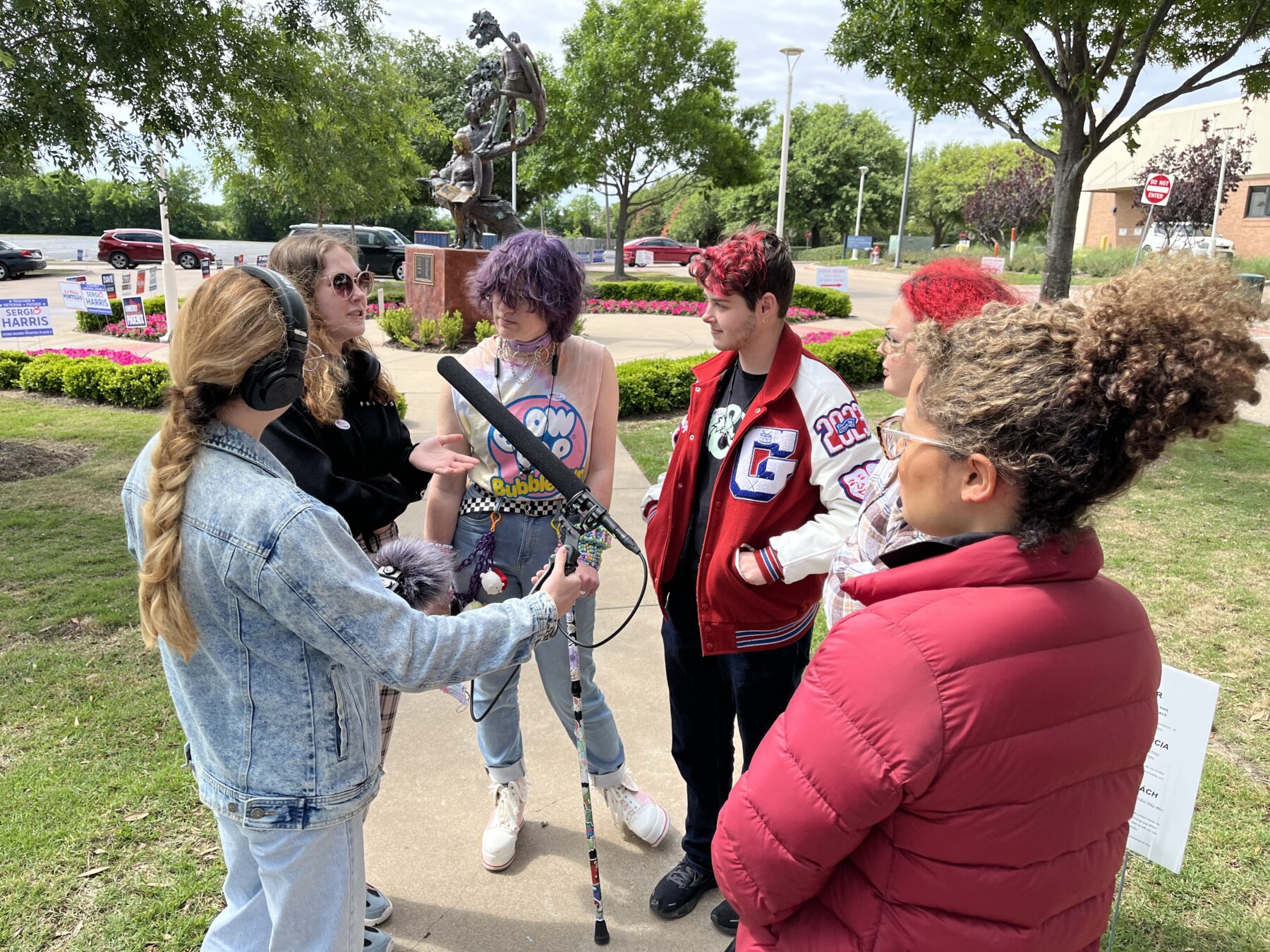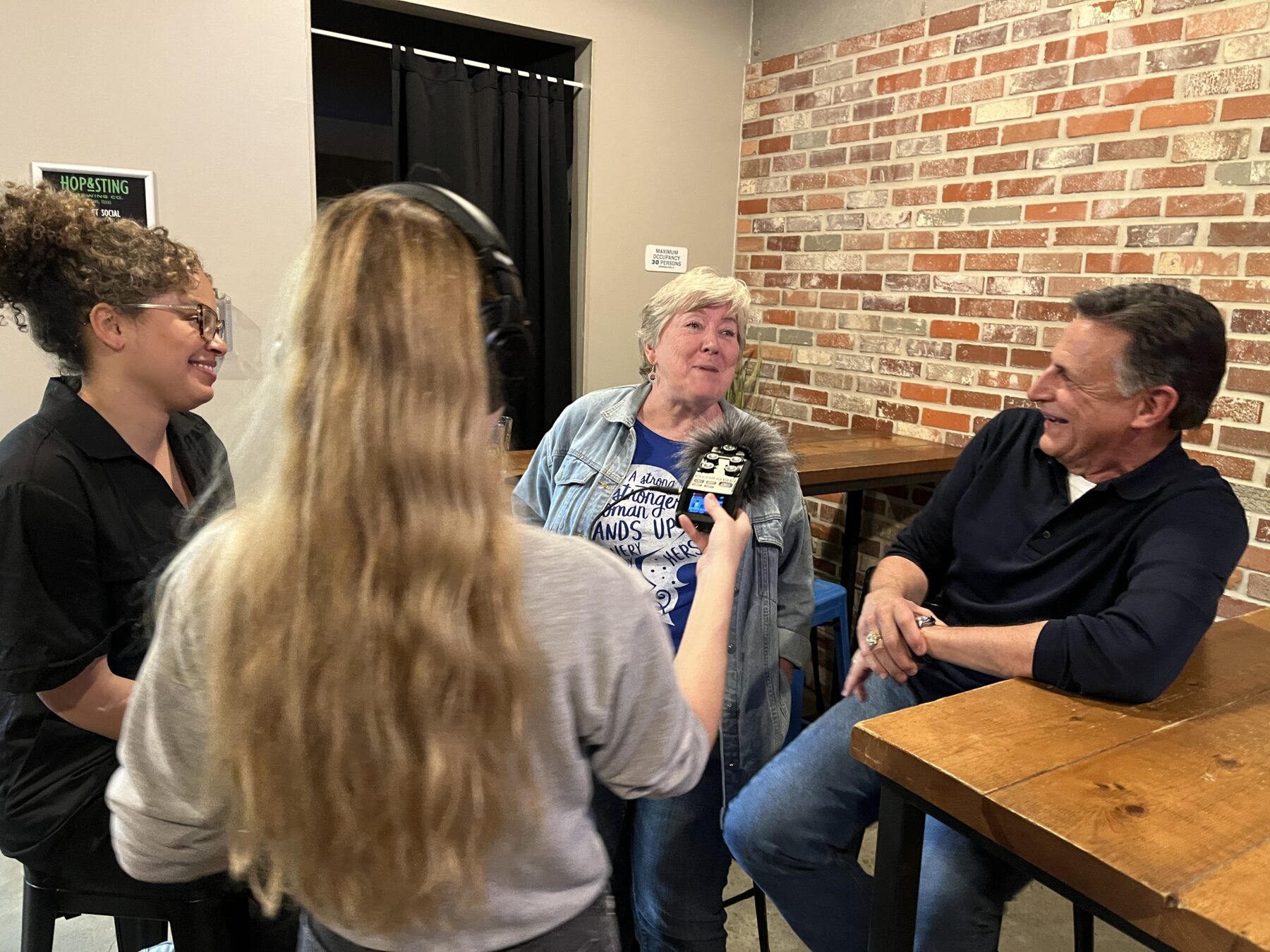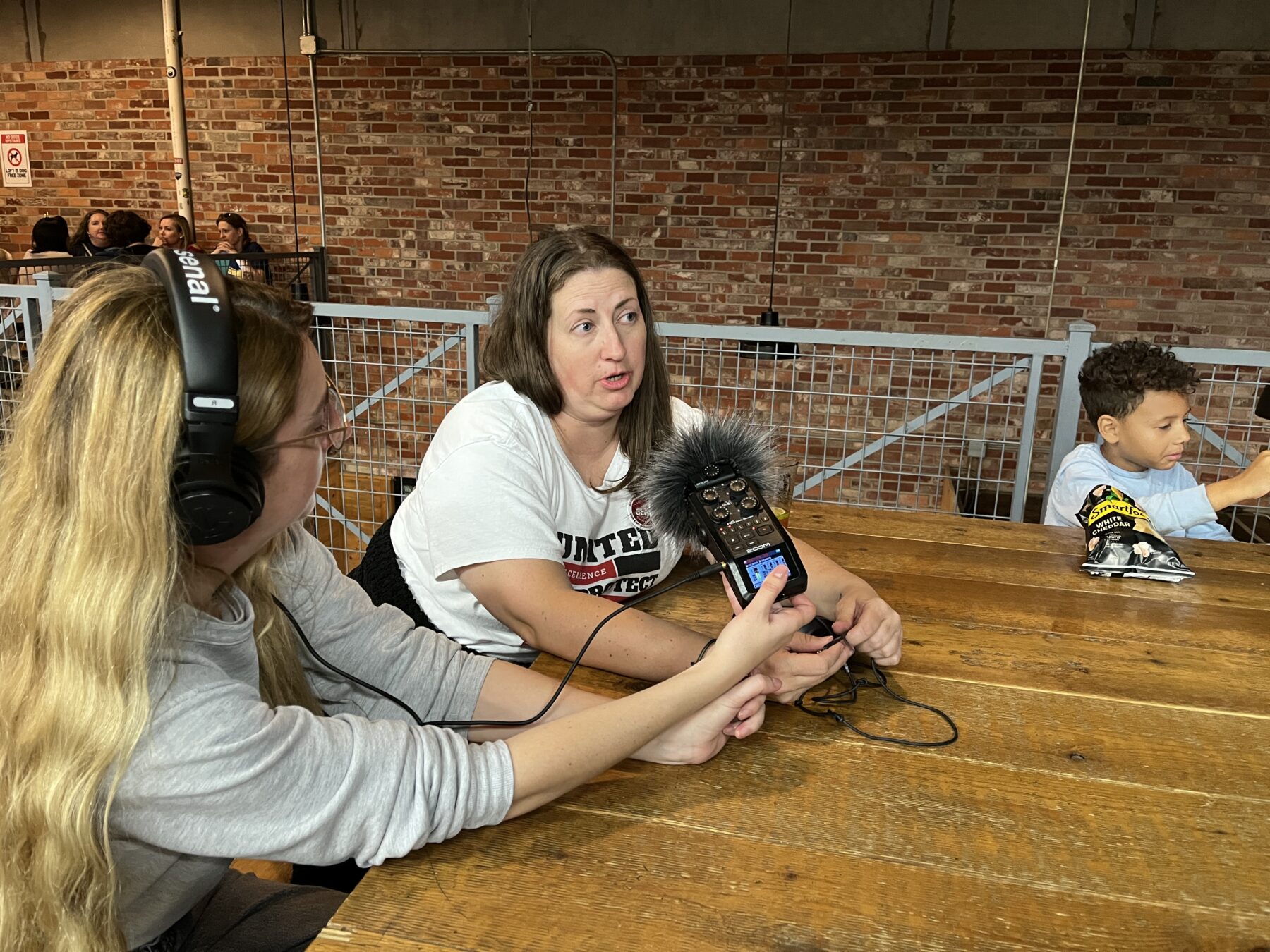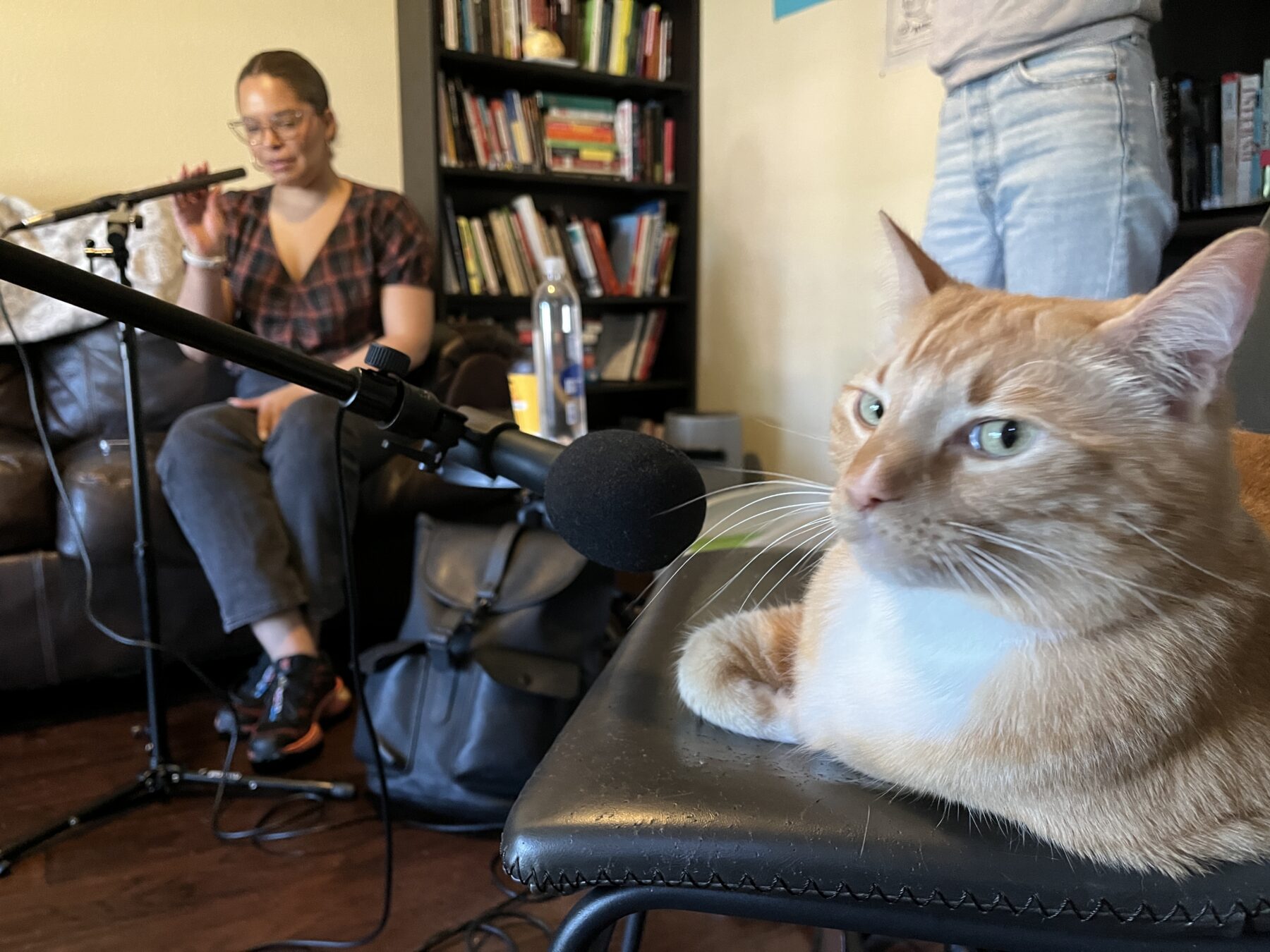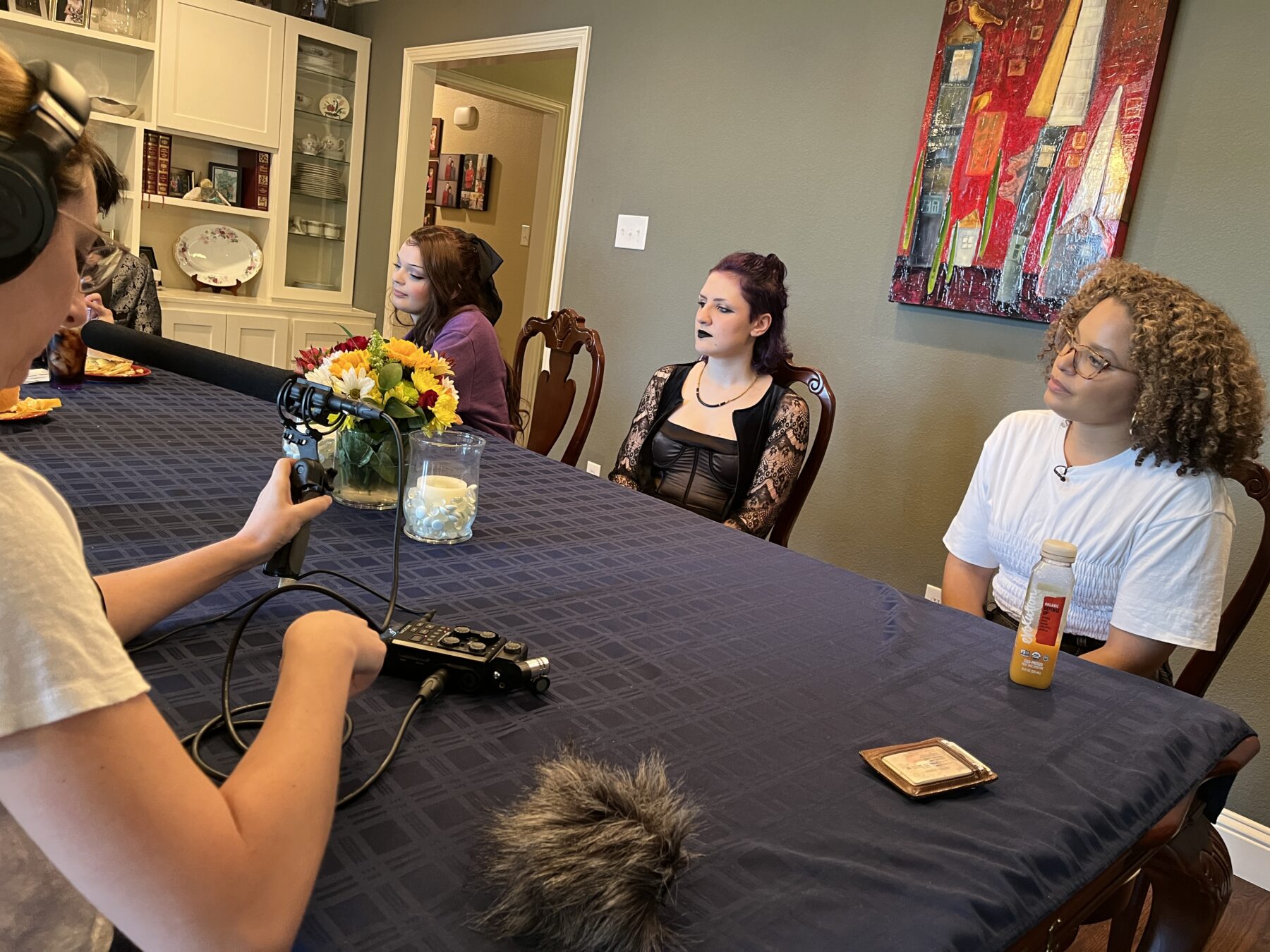Last October, NBC News released “Grapevine,” reporters Antonia Hylton and Mike Hixenbaugh’s six-episode podcast about a mother in Grapevine, Texas, who accused an English teacher of persuading her child to change genders. While the teacher and her student deny those claims, and the school district found no evidence of wrongdoing, the teacher was still the target of online harassment and eventually resigned.
“Grapevine” is a follow-up to “Southlake,” Hylton and Hixenbaugh’s 2021 Peabody Award-winning podcast about a Texas school board’s plan to ban “critical race theory” from classrooms.
The reporters say podcasting offers a unique form of storytelling. “If people sit and listen, they might come away with a little more empathy for people they don’t agree with or don’t understand,” said Hixenbaugh.
In the video above and the text below, Hylton, Hixenbaugh and producer Frannie Kelley discuss their work together and the value of podcasts as a medium for storytelling and journalism.
Finding a good story for a podcast
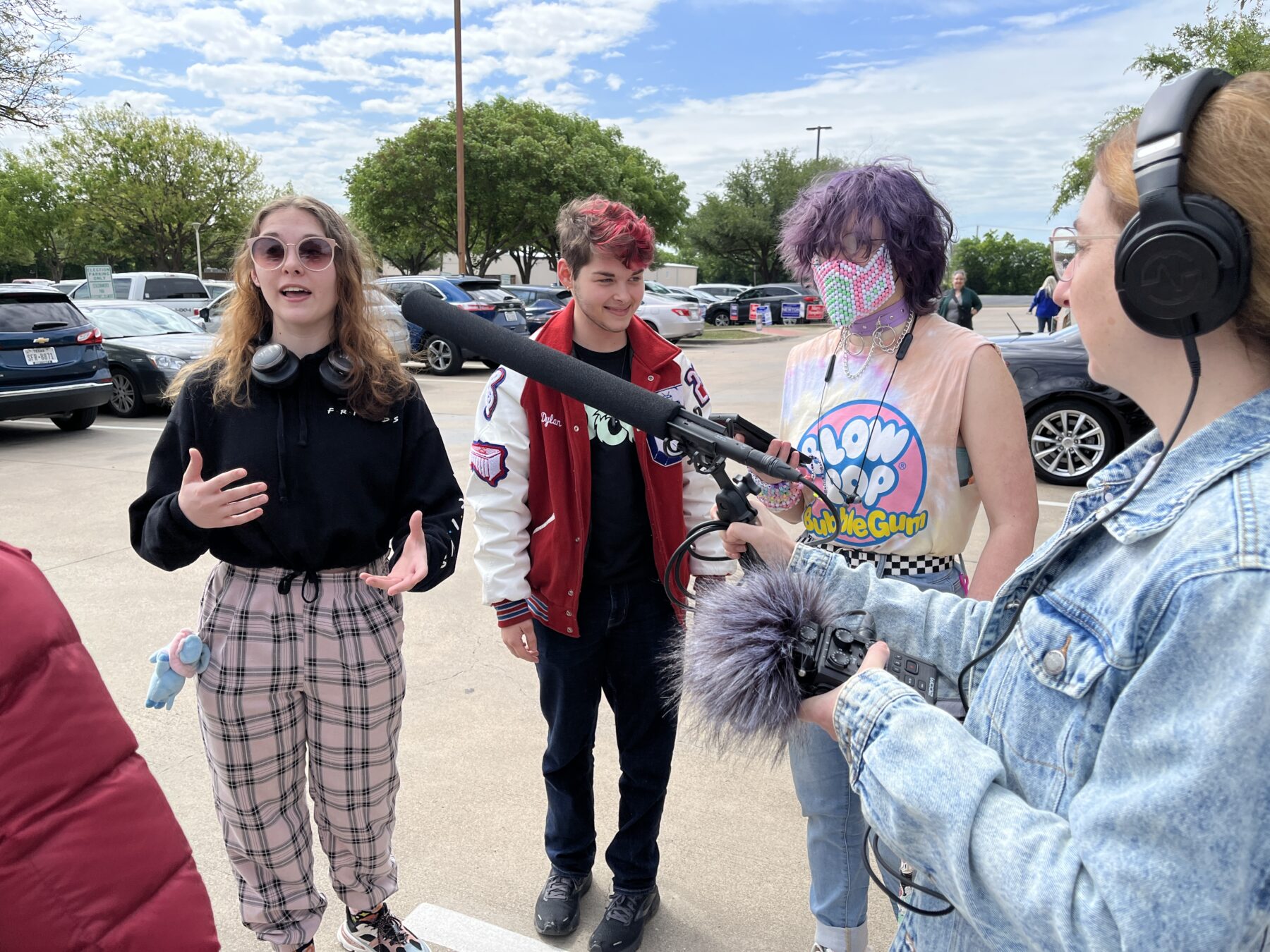
Antonia Hylton: Listen to a lot of podcasts. What kinds of stories do you listen to and can’t wait to queue up the next episode?
You can buy microphones and get started in your basement. If you’re on a college campus, you could start a podcast with classmates.
Mike Hixenbaugh: If you would tell your friends or family about it, those are the [stories] you should be looking for.
The story needs to have tension, stakes and enough compelling voices to tell it completely. What made [“Grapevine”] a podcast was how that personal, human story of the teacher, student and mom fit into a national political context.
Conducting quality interviews
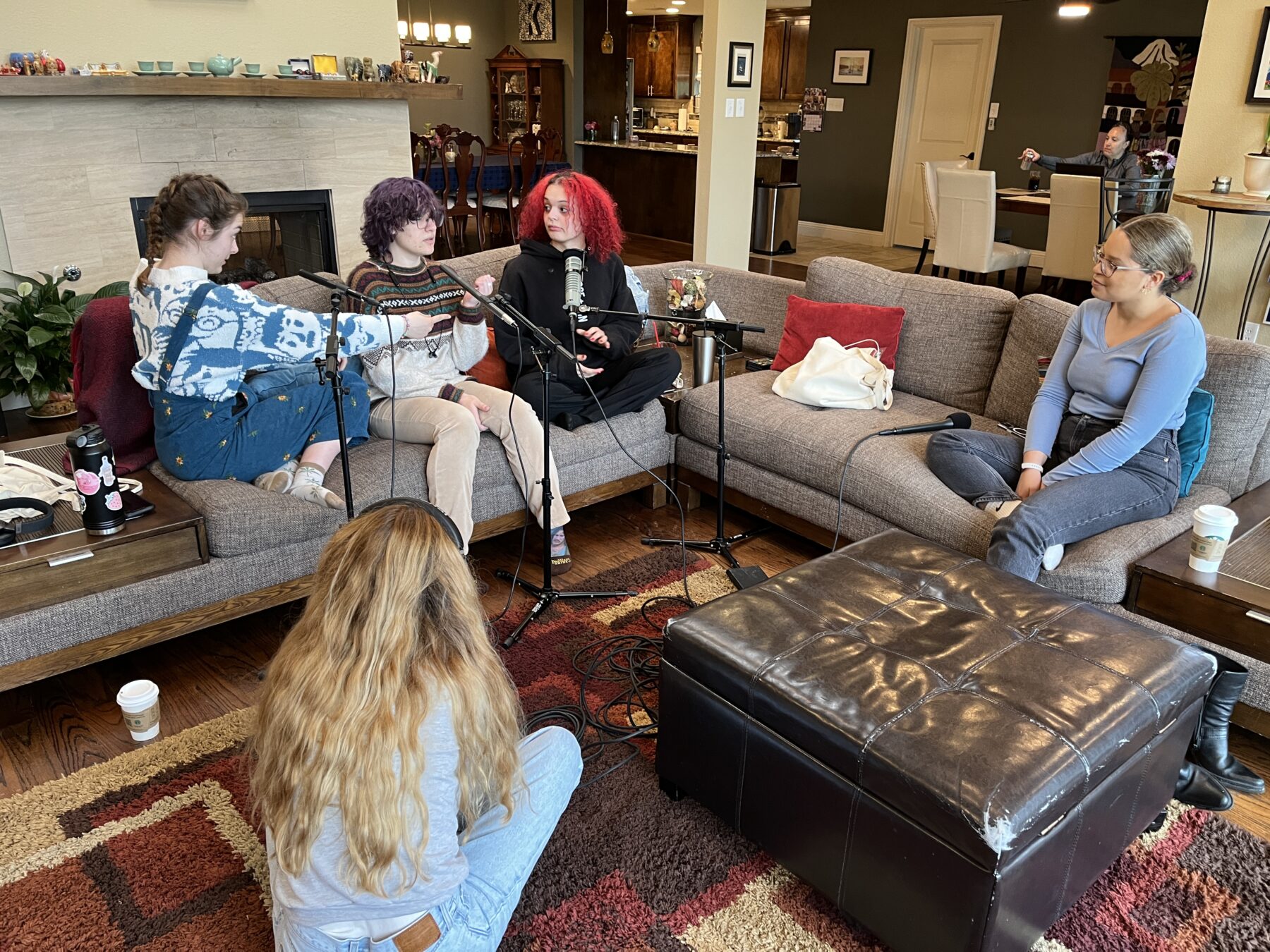
Hylton: Build trust, be transparent about how all this works. You can’t just knock on someone’s door and expect them to open up about the most traumatic experiences that they’ve been through.
Kelley: Because you don’t have to have cameras, it drastically changes the quality of the interview. People will be more open.
Hylton: I need to come to your house numerous times. I’m going to have a microphone in front of you for maybe eight hours straight. We’re going to talk about your life from the beginning to now. We’re going to laugh and we’re probably going to cry.
Kelley: Think about what’s going into your microphone, much more than what brand the microphone is or anything like that.
Hylton: Frannie is right there with us, usually on the floor, holding somebody’s pet to make sure that the pet doesn’t jump away and mess up our microphones. It’s lovely to have someone who understands how to make a scene sound the best — sounds of frogs, fountains running or cars whizzing by.
Working as a team
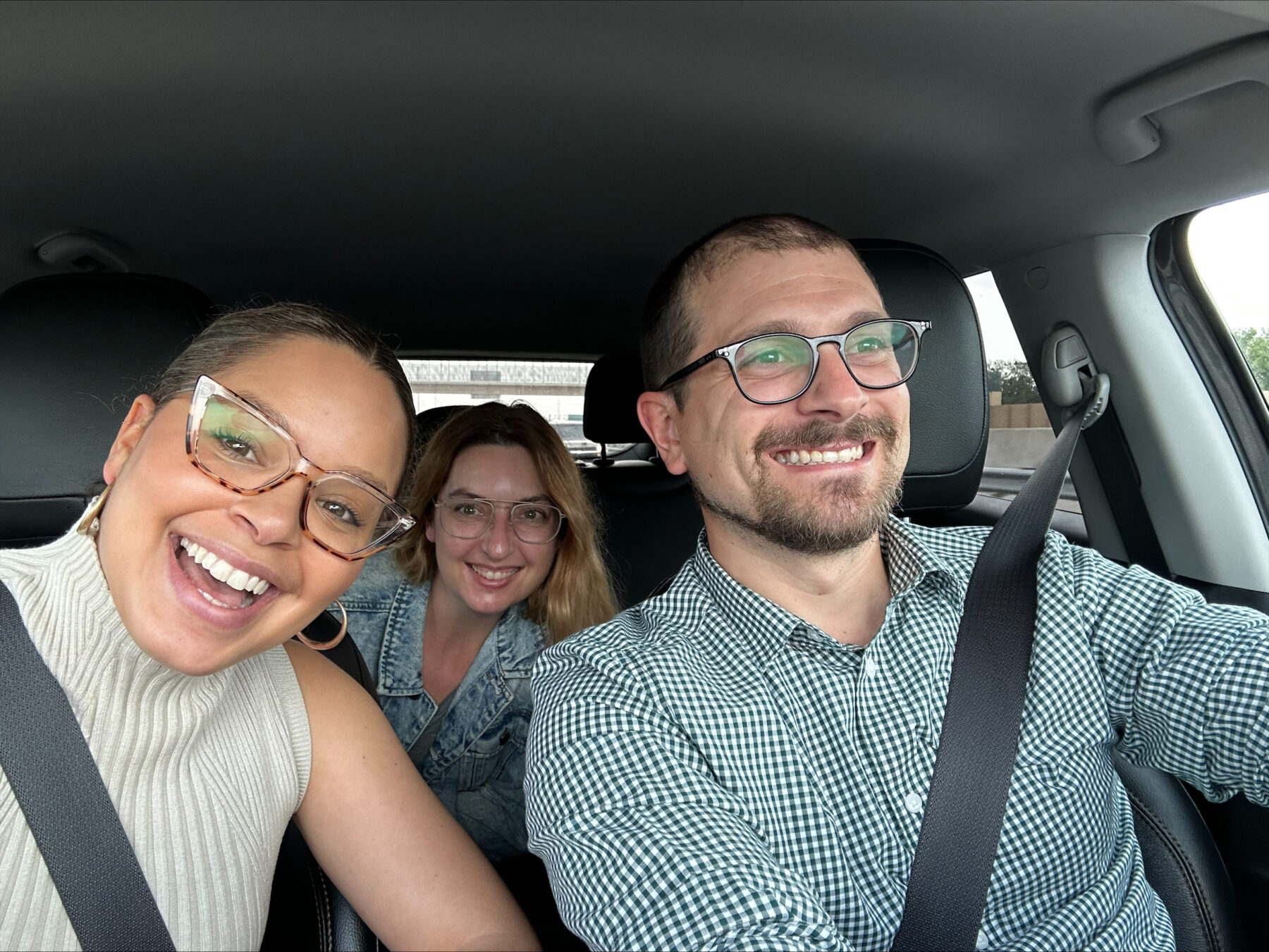
Hylton: Mike and I share the reporting load. Nine times out of 10, we’re sitting next to each other for every single interview. We push each other in the field, we question each other’s decisions.
When you’re telling stories about race and identity, it helps to have two people who are raised in very different worlds. I come from a multiracial, multicultural family. I know what it is like to be a Black student in a school and feel lonely.
Hixenbaugh: I am a white guy who grew up in a small, white town in the Midwest. I am a print journalist by training, Antonia is a broadcast journalist who’s comfortable on camera. We see each other’s blind spots.
Hylton: Mike can’t write one episode all by himself and then I write a different episode all by myself. We’re constantly going back and forth in scripts, tweaking things.
Kelley: Think about what tape does the most work in the least amount of time. What is most emotional? Write in and out of it. Use the tape to finish your sentence, or vice versa.
Hylton: Find friends and mentors who will give you feedback.
The power of podcasts
Kelley: I love sound. I love the intimacy of it. You really use your imagination to make only one sense capture other senses at the same time.
Hixenbaugh: You’re able to get into someone’s mind. If people sit and listen, they might come away with a little more empathy for people they don’t agree with or don’t understand.
Hylton: I love interviews where I’m getting to know someone’s life story deeply. It’s the soul and point of doing what we do.
Check out Antonia Hylton’s latest book, “Madness: Race and Insanity in a Jim Crow Asylum.”


